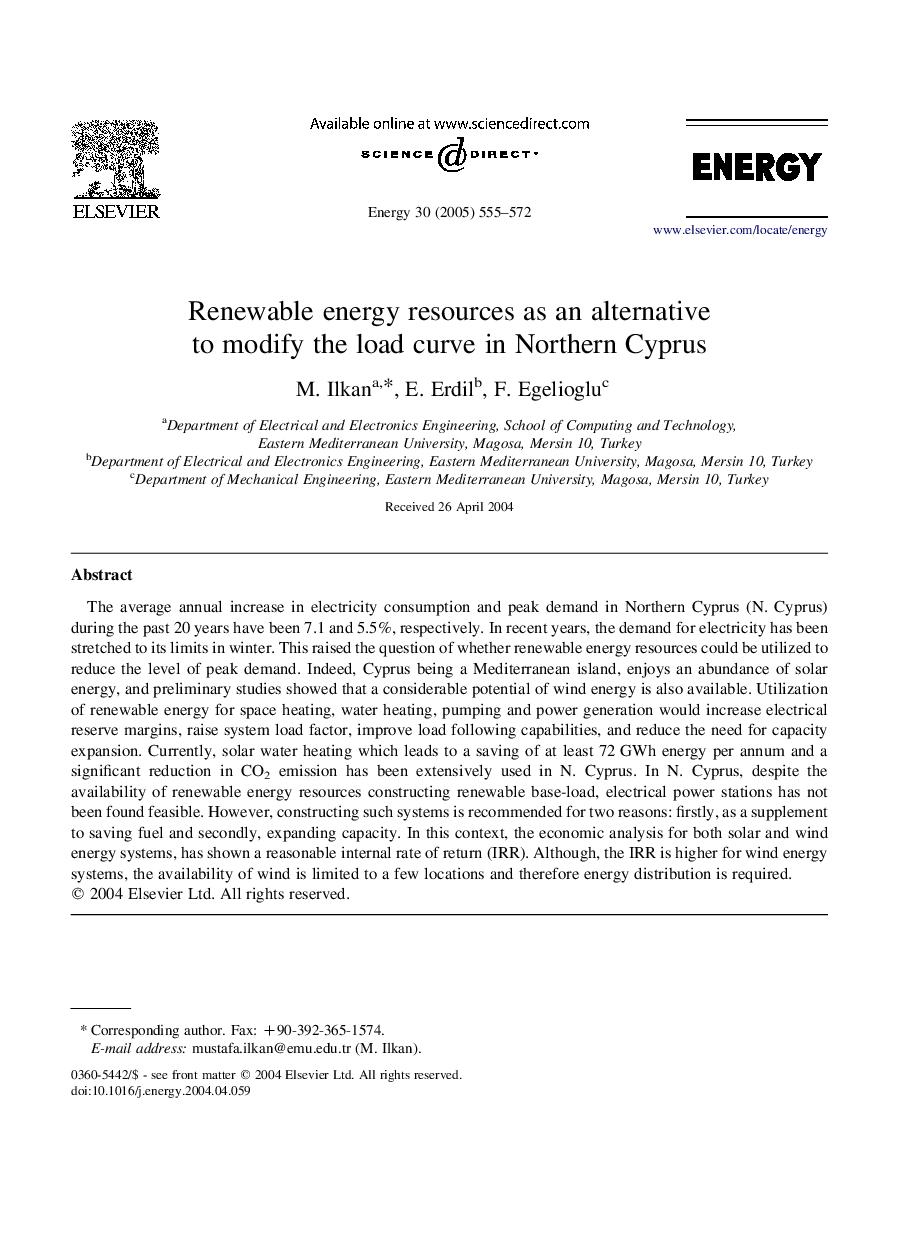| Article ID | Journal | Published Year | Pages | File Type |
|---|---|---|---|---|
| 10682946 | Energy | 2005 | 18 Pages |
Abstract
The average annual increase in electricity consumption and peak demand in Northern Cyprus (N. Cyprus) during the past 20 years have been 7.1 and 5.5%, respectively. In recent years, the demand for electricity has been stretched to its limits in winter. This raised the question of whether renewable energy resources could be utilized to reduce the level of peak demand. Indeed, Cyprus being a Mediterranean island, enjoys an abundance of solar energy, and preliminary studies showed that a considerable potential of wind energy is also available. Utilization of renewable energy for space heating, water heating, pumping and power generation would increase electrical reserve margins, raise system load factor, improve load following capabilities, and reduce the need for capacity expansion. Currently, solar water heating which leads to a saving of at least 72Â GWh energy per annum and a significant reduction in CO2 emission has been extensively used in N. Cyprus. In N. Cyprus, despite the availability of renewable energy resources constructing renewable base-load, electrical power stations has not been found feasible. However, constructing such systems is recommended for two reasons: firstly, as a supplement to saving fuel and secondly, expanding capacity. In this context, the economic analysis for both solar and wind energy systems, has shown a reasonable internal rate of return (IRR). Although, the IRR is higher for wind energy systems, the availability of wind is limited to a few locations and therefore energy distribution is required.
Related Topics
Physical Sciences and Engineering
Energy
Energy (General)
Authors
M. Ilkan, E. Erdil, F. Egelioglu,
